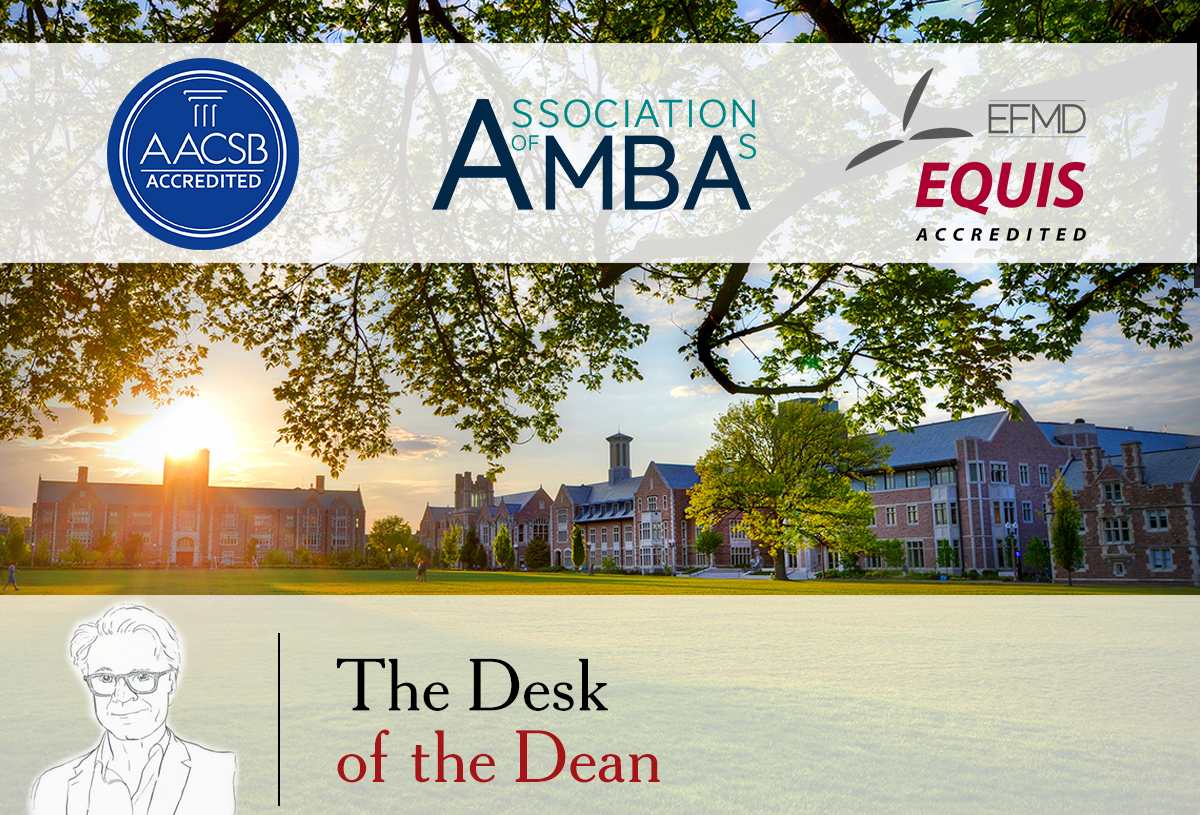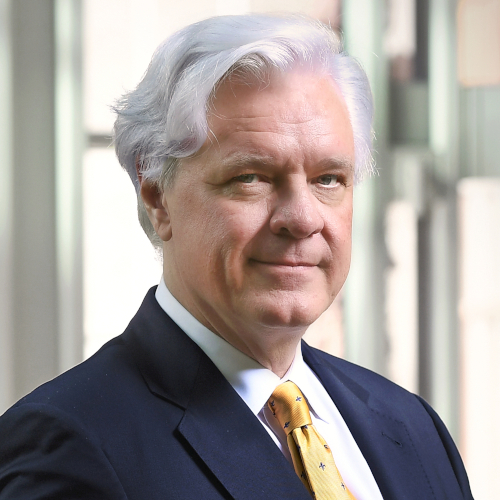Accreditation x 3: A triple gut check on WashU Olin’s progress
- November 6, 2019
- By Mark Taylor
- 3 minute read

Suppose you could invite three world-class consultants into your business to review your operations and provide a dispassionate review of the progress toward your goals. All three are recognized leaders in their field. They’re peers you regard highly.
Would you do it?
That is how I view a rigorous, challenging—and ultimately rewarding—process underway now at WashU Olin Business School. It’s called triple accreditation, and a veritable army of staff and faculty at the school have contributed to making it happen.
The idea is straightforward: We’re seeking certification from the three top accreditation bodies in business school education in the world—the US-based Association to Advance Collegiate Schools of Business, the UK-based Association of MBAs and the European Foundation for Management Development’s Quality Improvement System or EQUIS.
When we earn triple accreditation, Olin will hold elite status among more than 13,000 business schools around the world: Only 90 have earned the so-called “triple crown.”
Why go to the trouble?
Given that, some may wonder: Why bother? Why open ourselves to intrusive oversight and regulation? I don’t view it that way at all, and I have two reasons.
First, I’ve stood now on both sides of the process. I’m on my second tour as a business school dean, inviting reviewers to evaluate programmes. My previous institution holds the triple crown today. But I’ve also been the reviewer, invited to interview staff and faculty, stakeholders, university chancellors, provosts and members of national councils. I’ve also served on the board of the AACSB.
I understand how the process works. When we seek accreditation, we’re actually seeking affirmation that we are doing what we say we’re doing. At Olin, we have articulated clear standards through our pillars of excellence: Are we providing a values-based, data-driven education; offering experiential learning; establishing an appreciation for global business; and instilling a mindset of entrepreneurship and innovation?
“Accreditation is tied to our strategic plan. It’s not just a piece of paper. We are teaching this,” says Ohad Kadan, vice dean for education and globalization, who is leading our charge. “In our reports to the accreditation agencies, we have this assurance of learning, measuring the extent to which we’re delivering on what we say we’re going to teach every day.”
He has worked closely with every professor, on every class, to make sure each class is delivering on at least one of our strategic pillars. We’re evaluating student learning to ensure the message is heard. And we’re proving to the accreditation bodies that we’re meeting the standards we have set for ourselves.
Sending a message to the world
The second reason I’m keen on this achievement is the message I believe it will send. As I mentioned, 90 business schools have achieved this milestone. Many are among the world’s elite—London Business School, INSEAD, ESADE and HEC Paris, for example.
We’ll be the first US-based school listed in the Financial Times top 100 to achieve the triple crown.
We have burnished our reputation as a global program. More than 70% of our BSBAs had a global experience last year. Our MBA global immersion plants us squarely as the most global full-time MBA in the world. So, the prospect of donning the triple crown sends a signal: We are an international school, and we want our internationalism recognized.
“It’s a way for us to get to know schools we might want to partner with in the future—and to start building those relationships,” says Shannon Reid, Olin’s strategic initiatives analyst, spearheading the massive task of compiling and presenting the data. “It will also give faculty throughout the world a different perspective on what our programs are about.”
We set our vision. We say what we aim to achieve. In our case, our vision is world-changing business education, research and impact.
Mark Taylor
We embed that vision into our programmes and gauge our results. We invite world-class “consultants” to provide feedback on whether we’re achieving that vision. The accreditation bodies hold us accountable for the standards we have set for ourselves.
And that is why we are seeking—and intend to achieve—triple accreditation. We should know more by the end of 2020.
Media inquiries
For assistance with media inquiries and to find faculty experts, please contact Washington University Marketing & Communications.
Monday–Friday, 8:30 to 5 p.m.
Sara Savat
Senior News Director, Business and Social Sciences
